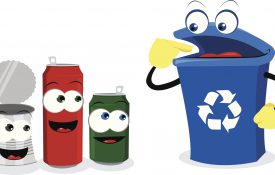-

“Please Feed Me”: The Power of Putting a Human Face on Social Causes
Companies often put a personal face on products to connect with consumers. The same idea may also work for social causes, like recycling and energy conservation, according to a series of studies.
-
Opferzahl bei Katastrophen bestimmt Spendenhöhe (Number of victims of disasters determine donations)
Die Welt: Die Zahl der Toten nach einer Naturkatastrophe hat mehr Einfluss auf die Spendenbereitschaft als die Zahl der Überlebenden. Das geht aus einer Studie der Rotterdam School of Management hervor, die im Fachjournal “Psychological
-
The Problem with Death Tolls
Slate: Pakistani authorities say at least 45 people were killed by a 7.8 magnitude earthquake that struck the country’s southwestern Baluchistan province today. As my colleague Josh Voorhees writes, that number is likely to rise
-

Disaster Relief Donations Track Number of People Killed, Not Survivors
People pay more attention to the number of people killed in a natural disaster than to the number of survivors when deciding how much money to donate to disaster relief efforts, according to new research
-

Bringing In More Donations to the Cause – At No Extra Cost
Research shows that donors are more generous when they’re asked to give a hypothetical amount to one person before deciding how much to actually donate to a group of needy people.
-
Hunger and Hoarding in the Welfare State
The Huffington Post: Suzanne Collins’ futuristic trilogy, The Hunger Games, takes place in Panem, a totalitarian nation of obscene wealth and pervasive poverty. Its twelve districts are all impoverished, but District 12, the coal-mining region

